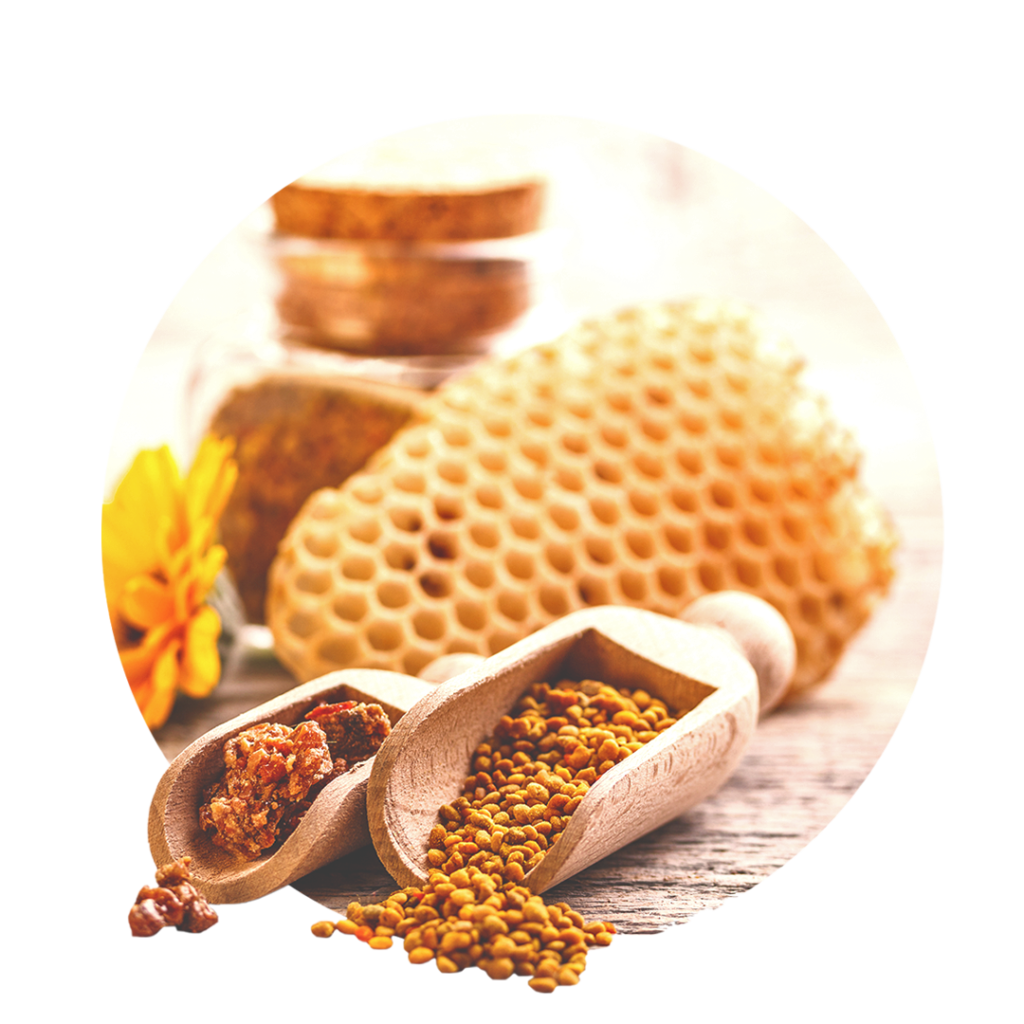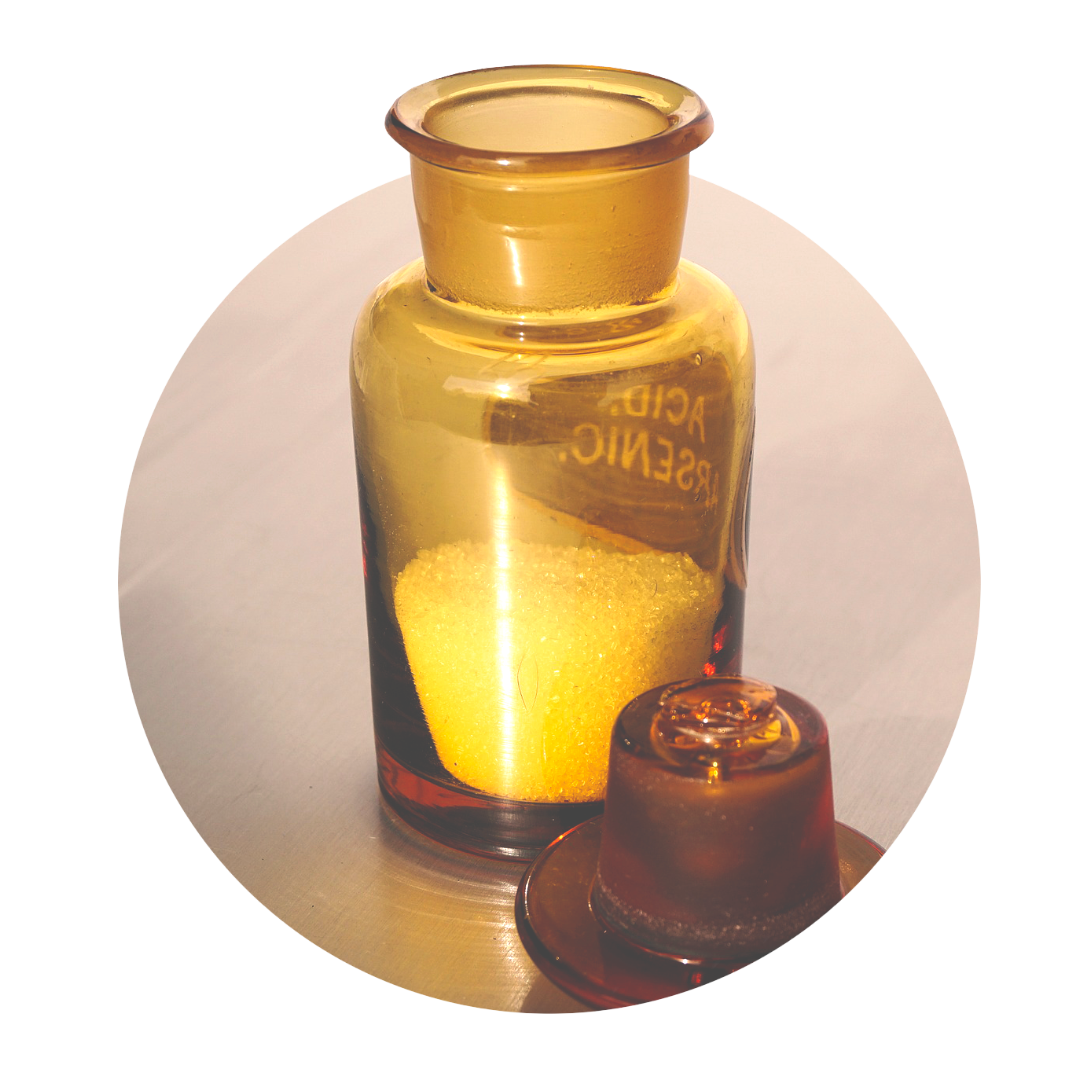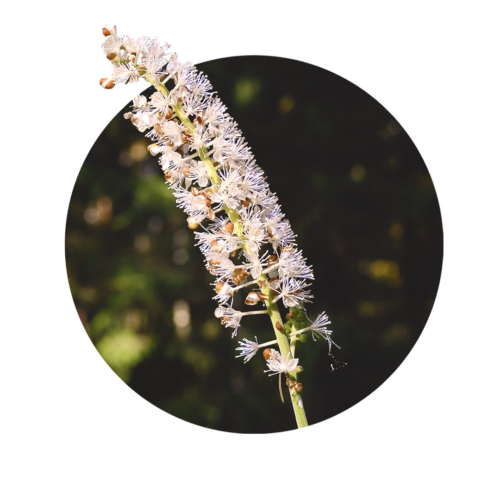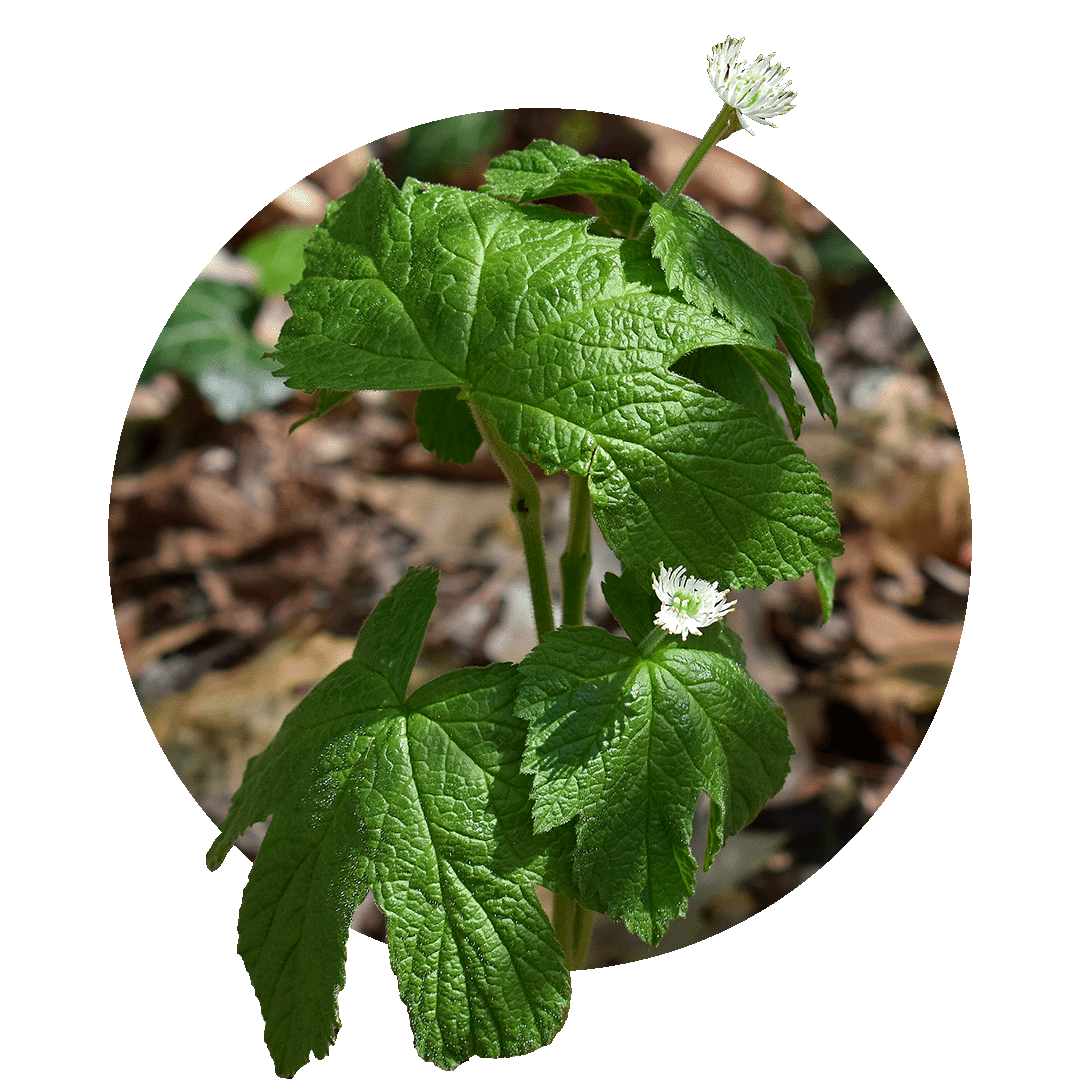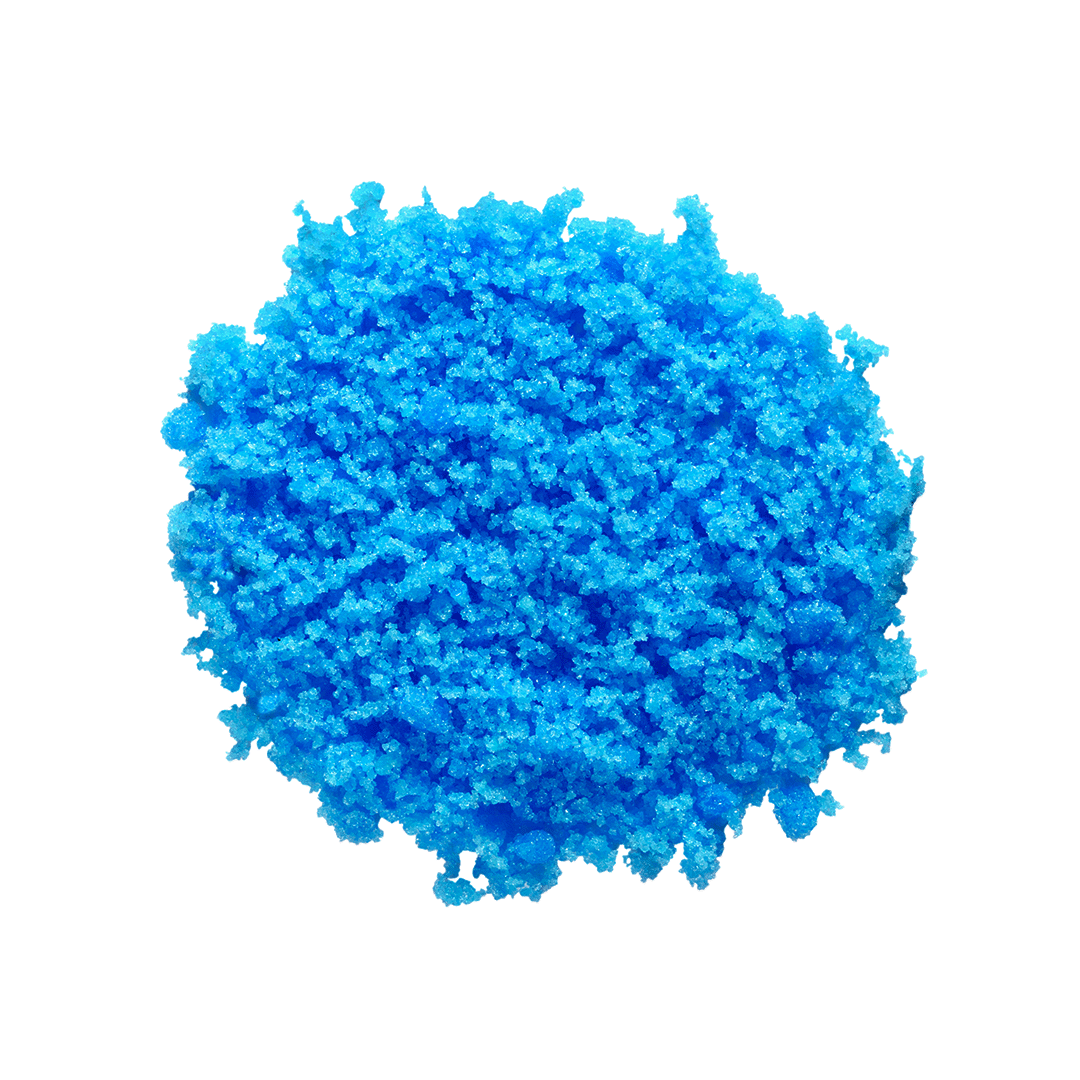Propolis: The natural remedy of bees
Propolis has a long history that can be traced back to Egyptian times. At that time, the putty resin of bees was used for mummification, as it has outstanding preservative properties. Probably it was used even earlier, but since then in all advanced civilizations the knowledge of the healing power of bee products has been preserved.
The bee itself produces this resin to preserve and disinfect the burrow, thus protecting the colony from disease. Every single honeycomb that is built is then wetted with a thin film of propolis to sterilize it.
In modern science, the study of propolis has shown that it is highly disinfectant, antifungal, antibacterial and antiviral. Mostly beekeepers themselves harvest the propolis from the bees today, clean it and make products from it such as ointments or tinctures. However, there are also some pharmacological manufacturers and pharmacies that specialize in bee products and offer pharmacy-quality goods.
Due to its complex composition and versatile action, propolis has a very wide spectrum in which it can be successfully used in medicine.
Especially the cosmetics industry has discovered propolis the last few years for themselves and massively marketed it in the beauty and care sector.
Facts about propolis
Did you know that...
... a bee colony produces up to half a kilo of propolis per year?
... every foreign body in the hive is covered with propolis to protect against infection?
... laboratory tests with propolis could also show an effect against difficult MRSA hospital germs?
... the name derives from the Greek pro=before and polis=city, as it can be found at the entrance to the hive?
What is bee kit resin?
Propolis is the putty resin of bees. Bees use it in many ways in their hive. It is used as a building material to repair damage to the hive, to cover honeycombs with a disinfecting protective film, and also to safely enclose foreign bodies in it so that they no longer represent a source of infection and danger. Propolis is a substance that is largely collected by bees. The main source are trees such as birch, beech, alder, poplar, horse chestnut, elm and coniferous trees.
Propolis consists of 10-70% resins, 15-40% waxes, 2-10% oils and 5-25% insoluble components. During collection, the bee additionally mixes this mixture with its own salivary secretions and beeswax.
Propolis is mostly lipophilic, i.e. it can be dissolved well in fat, but not in water. That is why it is also sealing, so that no water can penetrate into the hive.
At low temperatures, propolis is brittle; at warm temperatures, it is a rather sticky, waxy mass that can be easily molded.
General and healing properties of propolis
Antibacterial
Propolis is antiviral and antibacterial. Therefore, it is recommended for colds as well as infected skin inflammations.
Antioxidant
Due to its antioxidant effect, propolis cures are also recommended preventively to strengthen the immune system. It combines well with vitamin C and should be carried out before the onset of autumn.
Fungal infections
Propolis is also used for fungal infections. Especially for candidiasis of the intestine propolis has shown good results. Drops are the best choice here.
Promotes wound healing
Externally, propolis can be applied to wounds of any kind. It has proven effective for sunburn, skin abrasions or cuts. Propolis is disinfecting and its enzymes promote wound healing. The wound heals faster and better.
Propolis ingredients
In propolis has been studied over the years in numerous studies regarding its composition and effect. More than 300 different components were found, which in sum make up the effect.
You can find the following ingredients in bee kite resin:
- flavonoids such as chrysin, galangin, pinocembrin, apigenin, luteolin
- Phenols such as cinnamic acid, coumaric acid, caffeic acid
- Polysaccharides
- Wax
- Essential oils
- Pollen shares
- Salivary secretion of the bee
- Enzymes
Propolis: effect for body and mind
Propolis is a real fountain of youth for the body. Its effect is anti-inflammatory, disinfectant, antibacterial, antiviral and also antifungal. Propolis is used both externally and internally.
Internally, it is often used in dentistry for poorly healing surgical wounds or periodontal disease, a chronic degenerative disease of the gums. Here, mainly rinses with propolis drops are used. Good experience has been made in dentistry also in the treatment of aphthae. Here a systemic intake of propolis in combination with dabbing the affected area or a propolis tamponade is recommended. Since the effect in the mucous membrane area is very high one uses Propolis applications also with inflammations of the sensitive anal mucosa. One takes propolis in drop form internally and combines this with sitz baths. These are often recommended in this case, as they are very pleasant and relaxing for the sensitive anal area.
But also in general infections such as colds, to support the immune system or Candida albicans-related intestinal disorders propolis as an internal intake in practice, as well as in studies has shown effective.
Externally, propolis is used for skin fungi, rashes and poorly healing wounds. Mostly ointments or oils are used, because alcoholic solutions would burn.
Studies have also found an anti-cancer effect. It was observed in experimental animals that the growth of solid cancer tumors could be inhibited by propolis administration.
Properties of bee kit resin
- Antibacterial
- Antiviral
- Antioxidant
- Fungicide
- Promotes wound healing
- Anti-cancer
Areas of application in naturopathy: Propolis
Due to the many, different active substances contained in propolis, there is also a whole range of indications for which propolis can be used.
Propolis for cold & flu
Several studies have shown that propolis becomes antiviral and antibacterial. Especially with gram-positive and gram-negative bacteria, as well as rhino and herpes viruses, propolis has shown a very good effect. Most colds and flu infections are caused by rhinoviruses, so propolis is really a remedy of choice.
Bee citric resin as an inflammatory agent
Propolis has an anti-inflammatory effect with its enzymes and an antiviral and antibacterial effect with its flavonoids such as pinocembrin. It is therefore suitable for all types of inflammation for therapy and can be tried.

Propolis for immune strengthening
Due to its antioxidant effect, propolis can also be taken preventively to relieve the immune system and strengthen it. Beekeepers themselves like to make cures to keep themselves resistant and fit. For this purpose, propolis can be taken orally in the form of drops or capsules. Propolis drops can also be taken in combination with a lukewarm, hot lemon. Thus ascorbic acid, honey and propolis come together in a cup and provide an immune booster in the cool season. However, it should be lukewarm, because too much heat could break down the enzymes of the propolis.
Bee resin for skin problems
Skin problems have many faces. Often it is dry, inflammatory skin diseases that plague people. But they can also be bacterial, easily suppurating inflammations, which are usually caused by Staphylococcus aureus, a skin bacterium. Last but not least, skin fungi are also a possibility, as they can often be found on the feet in the spaces between the toes. Propolis is a good possible remedy for all the above mentioned variants. Studies have shown that staphylococci and skin fungi belong to the effective spectrum of propolis. So propolis has a proven antifungal and antibacterial property that can be used here. In the case of non-infectious, inflammatory skin rashes, propolis helps with its fundamental anti-inflammatory effect and additionally prevents an infection from joining in and aggravating the event.

Propolis for injuries
Propolis has been proven to promote wound healing. It is assumed that this effect is due to the disinfecting property in combination with valuable enzymes. Studies have shown that even with open legs, a so-called Ulcus cruris, Propolis-containing ointments could significantly accelerate the wound healing.

Propolis for allergies and hay fever
Hay fever is an enormous burden for many patients every year. It means fatigue, exhaustion, swollen eyes and a constantly running nose. In studies it could be shown that propolis massively weakens the allergy symptoms. Responsible the contained Flavonoide are made. They inhibit the mast cells from releasing histamine and thus reduce the intensity of the allergy.
Propolis for gum inflammation and aphthae
In dentistry, propolis has been a tip for many years. Chronic inflammation of the gums, called periodontosis, is a major problem for doctors. The gums increasingly retract and the necks of the teeth are exposed. Patients complain of increased sensitivity to cold and heat on the tooth, and tooth pockets form where pathogens lead to purulent infections deeper at the root. More complex surgical interventions may become necessary. Propolis shows a good effect here, in that it reduces the chronic inflammation of the gums and thus stops the degeneration. The tooth necks remain covered and the subsequent problems do not occur. In the case of aphthae, an erosive, painful inflammation of the oral mucosa, propolis has also shown positive effects. Dabbing propolis on the aphthae makes them heal faster and the pain subsides quickly.
Notes on the use of propolis
For prophylaxis in autumn propolis is taken daily as drops 2-3 times a day 10-15 drops in water for 3-5 weeks.
In the case of skin diseases, gum problems, injuries and aphthae, the duration of external and internal application should depend on the visible course of the disease.
Anti-allergic therapy with propolis should start in the earliest spring to achieve a therapeutic effect on the status of mast cells before the appearance of allergens.
For colds, multiple daily intake of 2-4 x 10-15 drops begins with the appearance of symptoms.
Bee resin during pregnancy and lactation
Many propolis preparations contain alcohol and are therefore not suitable for expectant mothers and during the subsequent breastfeeding period. Basically, with regard to the intake of propolis, there is only the allergy potential to consider that could be problematic for both mother and child.
Propolis for allergies
Allergy sufferers should be careful with propolis. The caffeic acid derivatives contained are considered contact allergens. In addition, there is the high content of pollen and thus proteins, which can be problematic for the allergy sufferer.

Get your propolis complex now and use the healing power of propolis
Use the healing power of bee resin and our more than 100 medicinal plants to naturally alleviate your ailments. Improve your well-being and support your body, mind and soul! With the help of our Configurator Your personal spagyric spray that is tailored to your needs and accompanies you on your natural path to improving your body, mind and soul.


